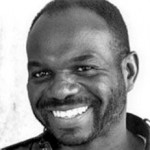Marjorie Hill told an HIV panel yesterday at Al Sharpton’s Ninth Annual National Action Network Convention that her first experience with the virus was helping out a straight black female college friend who was diagnosed 24 years ago with what was then called GRID. “I asked myself, how does Lorraine have Gay Related Immune Deficiency?” said Hill, CEO of Gay Men’s Health Crisis (GMHC).
Not that it mattered what you called the disease, she told an audience of about 60. Gay or not gay, anti-GRID stigma was so severe that the friend languished in her hospital room with the scarcest of human contact. Her meal trays were left in the hallway.
The severity of anti-HIV stigma—now as then—was the predominant theme at yesterday’s panel, which was hosted on the second day of the four-day New York City convention by Balm In Gilead founder Pernessa Seele.
The event was not so much a debate on HIV issues in the African American community as an occasion for storytelling and first-hand testimony about the disease. Among the HIV positive men and women stepping up to the mike were Andrea Williams, a peer educator at Life Force; Maria Davis, founder of MAD (Living With HIV); Reverend Stacey Latimer; and POZ’s own Marvelyn Brown.
Rev. Latimer’s stigma tale recalled the Greenville, South Carolina Southern Baptist church where he was hired in 2001 to form an AIDS ministry. “My pastor called me on the phone and told me that a few deacons in our church were starting a petition to get me removed from sitting in the pulpit, “ he recalled. They felt his HIV status threatened to “defile” the church’s reputation.
Latimer closed the meeting with a prayer asking God for strength to fight the epidemic—and the sentiment was echoed around the room. Seele vowed, “The change must start with us.”
Advertisement
Advertisement
Advertisement






Comments
Comments